Their interest piqued during COVID lockdowns and by a new Netflix drama, a fresh rush of foreign tourists are flocking to Japan for a look inside the insular world of sumo.
Japan's national sport -- hundreds of years old and steeped in tradition -- has long been a source of fascination outside the country, but those in the industry say interest has spiked in recent years, with some making the most of the new attention.
At a recent lunchtime "performance", two imposing sumo practitioners strutted their stuff in a Tokyo restaurant full of cheering tourists.
Afterwards, the spectators took selfies with the hulking athletes and donned padded sumo costumes and wigs to try their hand at the ancient art in a bout against retired professionals.
"The kids had a blast. I had a blast getting up there and fighting with them," said Kiernan Riley, 42, from Arizona. "They put on a good show. Definitely one of the highlights of the trip."
Tickets for the thrice-weekly event, which includes commentary in English and a slap-up meal, go for 11,000 yen each and were sold out for the following six weeks.
One of the stars is former top professional wrestler Takayuki Sakuma, aka Jokoryu, who stands 1.87 meters tall and weighed 170 kilos at his peak.
"When you're a professional, your life depends on sumo," the now-retired 35-year-old told AFP. "And it's not to be taken lightly. But to entertain people we add humor. The most important thing is to make people appreciate sumo as culture."
Netflix effect
Former amateur sumo wrestler John Gunning, who competed for his native Ireland and commentates -- in English -- on Japanese television, said there has been a "huge increase" in the sport's popularity abroad over the last five to 10 years.
But that popularity grew even more during COVID, when people stuck in lockdown explored new interests.
And the release this year of "Sanctuary", a new Netflix series set in the world of sumo, also helped to introduce the sport to a new audience.
"I'm seeing a lot of people saying that that was their first exposure to sumo," Gunning told AFP.
The Japan Sumo Association last year also launched an English-language YouTube channel, "Sumo Prime Time", whose videos rack up tens of thousands of views.
Ken Miller, 68, shows groups of American tourists the area of Ryogoku, a mecca for the sport, including the Kokugikan arena.
Each one pays several hundred dollars for the experience, and he says he is booked up for the next year.
Three times a year, in January, May and September, Kokugikan hosts the top stars of sumo in national tournaments in front of more than 10,000 cheering fans.
"I try to explain to them (the tourists) that sumo is not just a sport, it's part of the culture. And it's very much connected to Buddhism, Shinto," Miller told AFP. "It's a way of life."
'Stables' swamped
Tourists have long been able to visit the hallowed interior of a heya, one of the traditional "stables" where sumo wrestlers live and train according to strict traditions.
But because of the growth in interest, many stables have banned individual visits and only allow group tours booked through an agency, said guide Yuriko Kimura.
"When we started sumo stable training tours, it was maybe held once or twice a week, people didn't know about sumo. But then it surged around 2018-2019," she told AFP.
"I tell them that what is important is to show respect towards the stable and sumo wrestlers. If people from other countries know the dos and don'ts, they won't do something wrong."
Inside, visitors must stay seated and quiet so as not to disturb the wrestlers while they train.
One stable, Arashio in central Tokyo, has a large bay window where dozens of people gather every day to watch the training sessions.
Yuka Suzuki, 61, the wife of the former master who installed the window, said that the original aim was to chip away at the reputation of sumo being "secretive".
"But instead of locals, it's people from all over the world who have started to come," she said.
She added that she hoped that as a result, Japanese people would start to rediscover their national sport, which she said was essential for its survival.
"Young wrestlers came into this world (of sumo) to test themselves, but if there are fewer and fewer Japanese people who feel that way, sumo wrestling will also disappear," she said.
© 2023 AFP
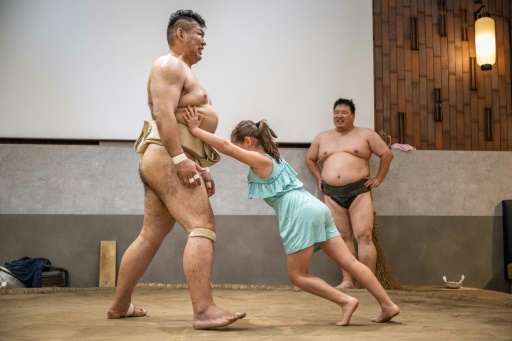



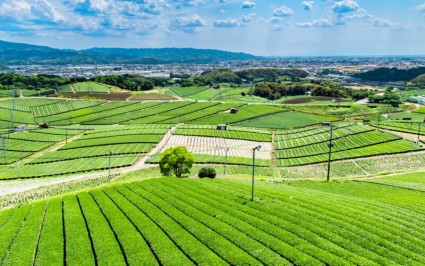
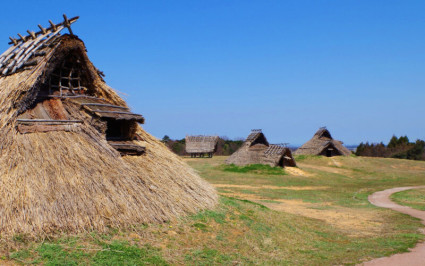

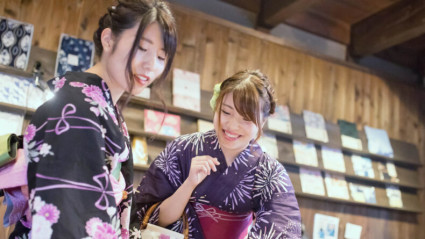


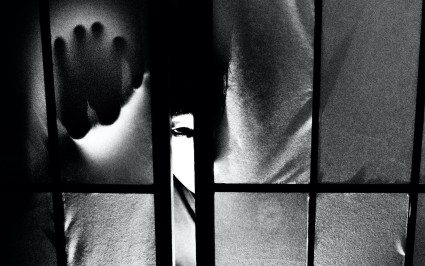

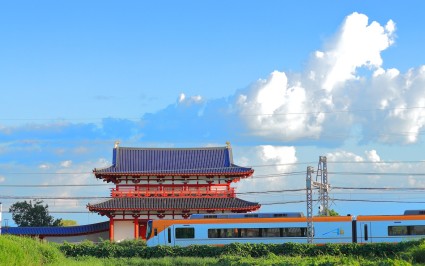
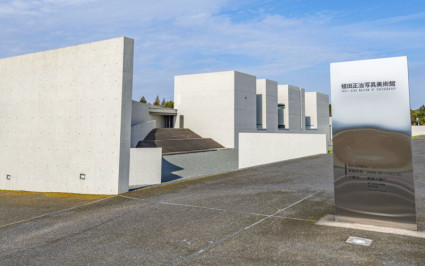
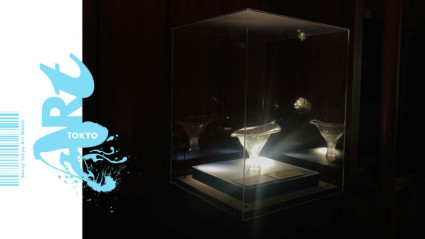
31 Comments
Login to comment
Gene Hennigh
When I was in Japan I was able to watch the rikishi duel in a honbasho. It is an unappreciated sport. Mostly unknown out side of Japan, I found the sport to be exciting, fun, thrilling, and oh so Japanese. Anyone visiting Japan should go to at least one match. These guys really are athletes. You have to see it to understand it. I'm so glad to know its popularity is growing.
Asiaman7
Japan’s great charms: Sumo, wadaiko (taiko drumming), onsens (hot springs), and exceptional food offerings.
Rodney
Loved sumo. Then I found out about gambling, corruption and fixed matches.
Fighto!
Worlds best whisky; Japanese sake; geisha; best powder snow and skiing on earth...the list is certainly endless!
Sumo is fantastic - particularly if someone else is paying for your box at the basho! Unique discipline that every visitor to Japan should experience - and will definitely continue to rise in popularity with foreigners.
Fighto!
You could name any sport in the world- sadly all are affected by these. Gambling and match-fixing is chronic in sports like cricket, for example - and you'll find it in everything from table tennis to football.
Meiyouwenti
Suspicions of match-fixing in Sumo are nothing new. It’s more of a show, an entertainment than a sport.
Yubaru
Nice fluff piece about sumo. Sadly the Japanese people don't see it the same way, as fewer and fewer young men and boys are interested in living the life of a "rikishi".
It's a hard life, and not many live into their 60's or older, as they have numerous health issues, biggest being diabetes, back, and knee, problems due to the diet, and lifestyle. There aren't many "sports" that the higher echelon athletes need to weigh 150 kg or more to be successful.
Foreigners may find it interesting and get their "taste" of Japanese culture, but for the sport to continue and be successful, it too has to adapt and change with the times. I highly doubt any of the "retired" professionals actually enjoy having foreign tourists try and push them out of a dohyo. But hell, they have to eat too!
Not many businesses want to hire former wrestlers, as they have little to no skills necessary to succeed in business, as they have been in a sumo stable since graduating HS. No education, other than sumo, and no skills other than sumo.
There is a hell of a lot more to what's happening in sumo, and articles like this just whitewash it away!
Yubaru
Nice try at deflecting and obfuscating away from the point. None of those "sports" have the history nor the culture that sumo has here in Japan. You don't see tournaments cancelled because of gambling or match fixing.
Sumo wrestlers get tax breaks that regular folks don't even though it is called the "national sport" of Japan, sumo is run by a non-profit organization, and there is no law anywhere that makes it the "official" national sport of Japan.
Mr Kipling
Yubaru.....
There is one "employer" who sweeps up the not so successful sumo cast offs.... A "job" where tradition, hierarchy and respect are paramount. Another of sumo's dark secrets.
roninroshi
I recall the great days of Kaio and ‘Robo Cop’…Asashoryu and Haramafuji! Those were truly great years!
isabelle
I'm not surprised sumo is popular with foreigners, as it's completely unique, and not something they can see in their own country. Experiencing different things is a big part of going on vacation, and sumo definitely fits the bill. As for the sport itself, I've watched it on TV for many years, and have been to Kokugikan several times. It's truly a great experience.
I loved watching Harumafuji! Watched him right back from when he was "Ama."
Groucho Marx
Great sport.
Rodney
Asashōryū Akinori
one of my heroes.
Yubaru
They were "great" for the foreigners watching along, but believe me, still today as well, the folks who run sumo have an open disliking and almost hatred for all the foreign rikishi who have held a stranglehold on the yokozuna position.
Those years were far from great, as they included gambling and hazing issues too!
To them "only" a Japanese person can be a true "yokozuna", as it's not just about winning or losing, but HOW they win, or lose, and more importantly how they act in public.
The media circus around Kisenosato being promoted to Yokozuna in 2017, as the first "Japanese" born one since 1998, when Wakanohana was promoted was embarrasing. Kisenosato really didnt "deserve" promotion as up until then, the "requirement" for promotion from Ozeki was to win two tournaments in a row, he didnt, but the sumo association, in their rush to promote a Japanese one, they talked alot of bs and promoted him anyway. He only won 1 tournament at yokozuna before retiring. The sumo association gave him plenty of leeway too, after he was injured, and he also holds the ignominious record of losing 8 straight bouts, as a yokozuna, over the course of two tournaments, that he was "forced" to retire.
The sumo association is hardly the altruistic culture standard bearer of Japan.
browny1
Yubaru - yes I recall that embarrassing elevation of Kisenosato to Yokuzuna.
As you stated he never fulfilled the established requirements for promotion - but was anyway to satisfy the "need" for a Japanese born champion.
And the ruling limiting only 1 foreigner to each stable was way off line. Especially so when some had taken Japanese Nationality only to be told, "Well you may be Japanese now, but you weren't born here" so the rule was clear - only 1 "foreign-born" wrestler per stable!!!!!!
And with all the gambling, match fixing, hazing, Yakuza linked scandals etc over the course I could still enjoy watching Hakuho who was on another level - much to the chagrin of the traditionalists.
But what really was an eye opener to me and millions of others was the disgraceful conduct in a 2018 tournament. A local politician was giving a speech in the dohyo, when he had a stroke(?). 2 nurses rushed to his side with one starting first aid. The referee called out over the audio system for the 2 women to immediately leave the ring as women are banned to set foot upon the scared ground. Why? Because historically they are considered unclean. Thankfully someone took over aid and the ambulance arrived and the guy was taken to hospital. He fully recovered and has thanked profusely the women.
After that any shine that was on Sumo quickly dulled. And when Hakuho retired a couple of years later then the dulling was complete.
CuteUsagi
Konishiki should have been top-ranked. Others were promoted with much less skill or wins.
kyushubill
Kyodo and Mainichi all last month kept bemoaning the fact Sumo attendance numbers and TV ratings are at the lowest in 10 years and they project with the elderly dying off it will continue.
Dave
@Rodney, agree, miss the old days, when you had guys like my friend Akebono (Chad Rowan)
but still fun to watch sometimes
Jonathan Prin
Sumo is semi-religious. Hardly no action can be personal.
To become rikishi is like becoming a kind of zealot.
Never ever expressing anger, show off or political views. True rikishi is humble and value Japan above all.
I went a few times to watch the Nagoya tournament.
Once I was with my wife and I told her Chiyonofuji (living legend of his time) was just a few meters above us commenting the matches, also in a standard box seating. Even she got excited.
He was sometimes coming and going as any normal person, without anyone harassing him. That everyone respect can only be provided by high education...
Yubaru
Ahh, but he fell to the "rule" that as an Ozeki it was REQUIRED that he HAD to win two tournaments in a row before he could be even considered for promotion, no matter the number of prior victories he had. (See Kisenosato) The sumo association is racist when it comes to "foreign" rikishi, and it burns them to no end that Hakuho is the all time "champion".
winston
Glad to see a female inside the sumo ring
kurisupisu
@winston
you will never see a female inside one-they are forbidden from entering.
TrevorPeace
Love the photo!
winston
That's not true as i saw a nurse enter the ring last year.
And in the photo the girl is inside the ring
Maybe you need glasses
CuteUsagi
I looked it up and finally after much research found out that Trans are not accepted as wrestlers because of DNA testing done these days and an XX is considered a female and not allowed in the sacred inner circle.
Roy Sophveason
I really, really would like to see the source for that.
aaronagstring
“Big pull.” Very clever.
Do annoying tourists get told to “Push off”….?
TokyoLiving
That's not an official Sumo ring..
It's a thematic Sumo restaurant..
(Facepalm)..
Yubaru
The nurse was called out on it, and the ring was ritually sanitized afterwards, if reports are to be believed.
Also as noted, the girl in the picture is not in an "official" ring! FYI overseas there are female sumo wrestlers too!
CuteUsagi
@Roy,
Try researching. Took me time.
Roy Sophveason
I tried, but no permutation of "transsexual rikishi dna test" search terms yields any results other than your comment here. Why don't you just link what you found, or at least hint to where you found it?